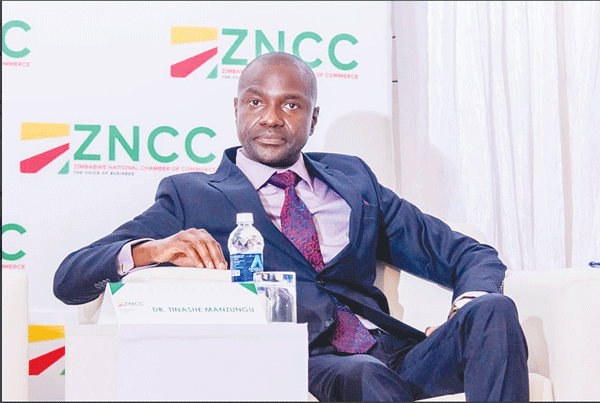
BY Lorraine Ndebele Early this month, the Reserve Bank of Zimbabwe (RBZ) fine-tuned its monetary policy statement (MPS) to fight rampaging inflation and exchange rate volatilities.
NewsDay (ND) Business reporter, Lorraine Ndebele reached out to economist and former Zimbabwe National Chamber of Commerce president, Trust Chikohora for an insight into the impact of the central bank’s intervention. Below are excerpts of the discussion…
ND: Give us your assessment of the MPS.
TC: The MPS did not introduce any shocks. It has maintained the policy stance that has been there.
There are some positive developments in it which will help to improve the situation. Examples include the increase in the limit that can be traded in bureau de change transactions, which have been raised to US$5 000 per transaction per month, from US$500 per week.
In banks, the willing-buyer willing-seller values have been increased from US$10 000 per transaction per week to US$20 000.
We have been calling for this because it will encourage more activity on the interbank market thus drawing more transactions away from the parallel market.
ND: What’s going to be the impact of this action?
- Chamisa under fire over US$120K donation
- Mavhunga puts DeMbare into Chibuku quarterfinals
- Pension funds bet on Cabora Bassa oilfields
- Councils defy govt fire tender directive
Keep Reading
TC: The doubling of that limit on the interbank rate and higher multiplication of the limit on bureau de change will go a long way towards increasing access to foreign currency for higher value transactions in the formal market rather than the parallel market and making the interbank rate more privileged on the market place and curtailing the parallel market rate further. Furthermore, gold coins which have helped stabilise the market, are now going to be produced in smaller denominations.
The RBZ is now talking about a tenth of an ounce, which will take the value at current prices to around US$180 per gold coin. This is affordable to most people even in the working class as an alternative store of value.
ND: Will this have an impact on the exchange rate?
TC: This will further strengthen the Zimbabwe dollar and will dampen the volatility on the exchange rate front and, hopefully, help in price stabilisation.
ND: Explain RBZ’s action on the medium-term accommodation.
TC: The medium-term accommodation rate of 100% for lending should be used more in the productive sector especially for known capital projects which create and add more value for known projects to have the affordable rates.
It must be used constructively for productive projects.
ND: Do you see the black market ending?
TC: Well, this is not the end of the black market. But we hope that this will reduce the influence of the parallel market going forward and increase the influence of the interbank rate. In terms of an ultimate solution for Zimbabwe, we need to grow the economy.
We need to increase exports, we need to increase value addition, we need to generate more foreign currency, get more investment into the country and more remittances so that there is increased supply of foreign currencies. We must have adequate foreign exchange cover for several months’ requirements.
ND: You have talked about the strength of the MPS, tell is the downside.
TC: The downside is that economic growth will also be curtailed.
Yes, we will be able to fight inflation and exchange rate volatility.
“But the other side of it is that economic growth will also be curtailed in the meantime when we are not able to expand economic activity and expand local investment and economic growth even through borrowing.
But economic growth had to be sacrificed in order to achieve stability. In the medium to long term, hopefully, the market becomes more stable. The MPS should also be able to accommodate the availability of resources to be able to achieve economic growth.
ND: Tell us more about exchange rate developments.
TC: For now, the increase in exchange rates, as well as inflation, will be reduced from what it would have been had these policies not been put in place.
Remember, we (economists) gave advice for these policies at the currency indaba and they are now paying off. So, we are happy that the currency indaba is paying off for the benefit of all Zimbabweans.
We expect that the situation will move forward in a manner that is not as volatile as we have been seeing previously.
- Follow us on Twitter @NewsDayZimbabwe










